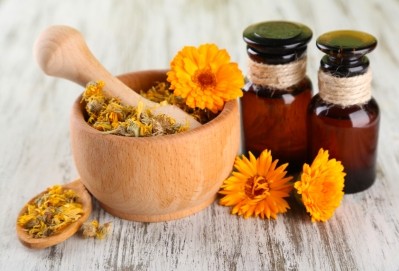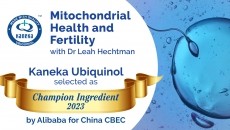Eye health formulations may require three-carotenoid combinations, says ‘important and novel’ data

The macula is a yellow spot of about five millimeters diameter on the retina. As we age, levels of the pigments in the macula decrease naturally, thereby increasing the risk of age-related macular degeneration (AMD). The yellow color is due to the content of the carotenoids lutein and zeaxanthin, which we derive from the diet.
These compounds are the only carotenoids capable of filtering the harmful blue light than can damage cells in the eye, the rods and the cones.
A thin macular pigment can allow the blue light through and destroy the cells. Maintaining high levels of both carotenoids, and therefore the macular pigment, is a valid approach to maintaining eye health and reducing the risk of AMD.
Typical macular pigmentation is for a peak at the center of the macula, and this then decreases with increasing distance from the spot. However, some people have atypical macular pigmentation, which may make some individuals more susceptible to damage from blue light, and ultimately AMD.
The new study, published in the British Journal of Nutrition, found that a combination of all three carotenoids - lutein, zeaxanthin and meso-zeaxanthin – may be needed in a formulation to boost levels of the carotenoids in the macula.
All three?
“The present study has yielded important and novel findings, such as the presence of meso-zeaxanthin in the serum of normal and AMD subjects following supplementation with high doses of lutein, and the significantly greater serum meso-zeaxanthin response amongst subjects with AMD v. normal subjects following supplementation in the high meso-zeaxanthin group,” wrote the researchers, led by Katherine Meagher from the Macular Pigment Research Group at the Waterford Institute of Technology in Ireland.
The researchers noted that all three macular carotenoid interventions produced rises in blood carotenoid levels, albeit to different extents. The best results, they noted, were observed in the group that received a combination of zeaxanthin (2 mg), lutein (10 mg), and meso-zeaxanthin (10 mg).
“In other words, it appears that a formulation containing all three macular carotenoids was more efficacious in terms of achieving a higher concentration of circulating levels of total macular carotenoids, thereby potentially optimizing the bioavailability of these compounds for capture by the target tissue (retina).”
Suggestive, but needs reproducing
Talking to Commenting on the study’s findings, Michael McBurney, PhD FACN, the Head of Scientific Affairs for DSM Nutritional Products, told NutraIngredients-USA that lutein and zeaxanthin must be obtained from the diet.
“Although a few obscure food sources exist, the retina seems to be the only tissue capable of metabolizing lutein to meso-zeaxanthin,” said Dr McBurney.
“Meagher and colleagues compared human serum responses to different combinations of lutein, zeaxanthin and meso-zeaxanthin consumed as dietary supplements. This study indicates there are no differences in lutein and zeaxanthin absorption, measured by serum responses, between healthy individuals and those with AMD.
“The reported elevated serum meso-zeaxanthin levels in AMD vs. healthy subjects may suggest a difference in the ability to absorb meso-zeaxanthin from the supplement tested.
“However the small numbers of subjects and the large standard deviations would call for a replication of this difference in larger groups before more conclusions were to be drawn.”
Study details
Meagher and her co-workers examined the effects of different combinations of the carotenoids on serum levels in 27 people with healthy eyes and 27 people with AMD. Three combinations were used: Group 1 received 20 mg of lutein and 2 mg of zeaxanthin; Group 2 received 10 mg of lutein, 2 mg of zeaxanthin, and 10 mg of meso-zeaxanthin; and Group 3 received 3 mg of lutein, 2 mg of zeaxanthin, and 17 mg of meso-zeaxanthin.
After eight weeks of supplementation the researchers noted that lutein and zeaxanthin levels increased in only groups 1 and 2, but not in group 3. Meso-zeaxanthin levels increased in all the groups.
“The formulation containing all three macular carotenoids (Group 2 supplement) was the most efficacious in terms of achieving the highest combined concentration of the three macular pigment constituent carotenoids in serum, thereby potentially optimising the bioavailability of these compounds for capture by the target tissue (retina),” wrote the researchers.
The other researchers were affiliated with the University of Ulster, the Whitfield Clinic in Waterford (Ireland), the Howard Foundation, Cambridge (UK), the University of Cambridge (UK), and the Waterford Institute of Technology (Ireland).
Source: British Journal of Nutrition
Published online ahead of print, doi: 10.1017/S0007114512004837
“Serum response to supplemental macular carotenoids in subjects with and without age-related macular degeneration”
Authors: K.A. Meagher, D.I. Thurnham, S. Beatty, A.N. Howard, E. Connolly, W. Cummins, J.M. Nolan















